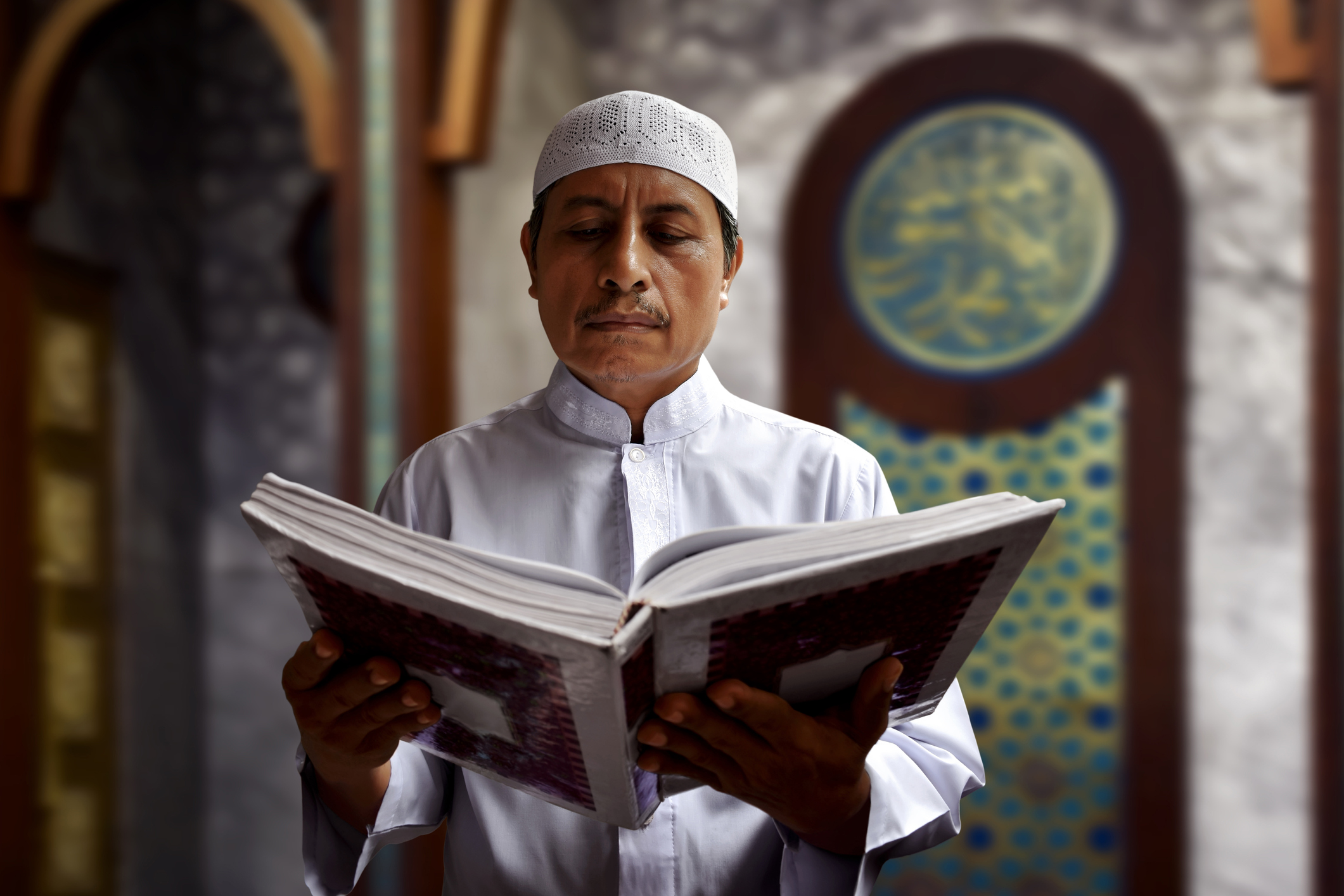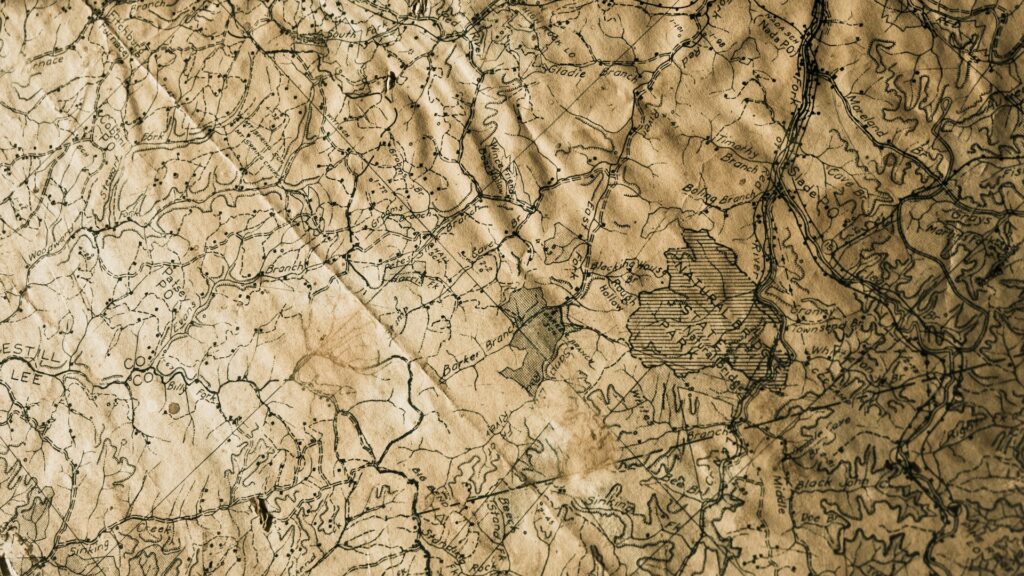Many approaches to religious studies refer to Judaism, Christianity, and Islam as “Abrahamic religions.”
This is because each tradition lays claim to Abraham as a key founder of the faith.1 For the Jews, Abraham is the patriarch who received the covenant and bore the promised offspring that led to the twelve tribes of Israel.2 For Christians, Abraham is an exemplar of salvation by faith and the conduit of blessing for the nations.3
For Islam, establishing a connection with this key figure is a vital component of making the claim to continue and complete prior revelation. In fact, Ibrahim—the name by which this character is known in the Qur’an—is the second-most referenced person in the Qur’an.4 Perhaps most importantly, he is presented as a sort of primal Muslim.
This article, then, investigates the qur’anic Ibrahim and his function within Islam. Not only does the Qur’an capitalize on his importance to prior religions, it also recasts him and his story according to its own purposes.5 As we inspect the qur’anic Ibrahim, we discover reason to hesitate in offering an unqualified endorsement of the idea that Islam and Christianity share Abrahamic origins.
Ibrahim the Muslim

As one might have already noticed, the verse quoted at the beginning of this article explicitly claims that Ibrahim was a Muslim who lived amidst a milieu of polytheism prior to the dawn of Judaism or Christianity. In other words, Ibrahim is exemplary as one who rejected polytheism long before the rise of other monotheistic religions. Thus, he serves as a prototype for Muhammad—the final Islamic prophet—who would also adopt monotheism from within the context and culture of polytheism. This, however, is not the only way that Ibrahim prefigures Muhammad. It is instructive to consider a number of additional distinctives between the Ibrahim of the Qur’an and the Abraham of the Bible in attempting to understand how this character has been shaped within the Islamic scriptures.
Ibrahim and Abraham
According to the Qur’an, God’s prophets are all responsible for delivering the same message, and therefore should all be received and revered.6 The implication of such an understanding is that the Qur’an views each prior prophet—most of whom appear to be references to biblical characters—as reinforcing and contributing to the religious program of the Qur’an. Clearly, the Qur’an intends to include Ibrahim in such a claim, though his qur’anic story includes several divergences from the biblical account.
A Lineage Difference
First of all, in the Qur’an, one finds no reference to the fact that God made a covenant with Ibrahim that would continue through the line of Ishaq (Isaac).7 Instead, the Qur’an only uses covenant language regarding Ibrahim when connected to Ismail (Ishmael), as seen in Qur’an 2:125–29:
We made a covenant8 with [Ibrahim] and [Ismail]: “Both of you purify My House for the ones who go around (it), and the ones who are devoted to it, and the ones who bow, (and) the ones who prostrate themselves. . . . Our Lord, make us both submitted to You, and (make) from our descendants a community submitted to You. And show us our rituals, and turn to us (in forgiveness). Surely You—You are the One who turns (in forgiveness), the Compassionate.”
Though the Qur’an also identifies a covenant with the Sons of Israel,9 and it views Ishaq as a prophet,10 it avoids the idea that God intended to uniquely connect himself to Ishaq as the conduit of blessing for the nations. Instead, as seen above, Ibrahim and Ismail are seen praying for specific rituals to be given to them. Furthermore, they pray for a prophet to arise from their line, advancing the qur’anic presentation of Ibrahim as precursor to Muhammad.
A Geographic Difference
This same passage highlights a second difference regarding Ibrahim and Ismail in the Qur’an: embarking on an extra-biblical journey to the Arabian Peninsula. Not only does Qur’an 2:125–29 record the covenant between Ibrahim, Ismail, and God in Mecca, but according to most Islamic interpretations, this journey took place so that the father and son could build the holy temple known as the Ka‘ba.11
This journey and the temple it resulted in connects Ibrahim not only with Muhammad, but also with contemporary Islamic practice. In 630 CE, Muhammad and his army marched victoriously against Mecca. His first act as conqueror was to purge the Ka‘ba of its idols and to restore it as a place of worship of the one true God. To this day—following the commands of Qur’an 2:144–50—contemporary Muslims are called to orient their prayers toward the Ka‘ba in Mecca as the center of true monotheism. Thus, Ibrahim in the Qur’an is not as concerned with the land of promise that would be given to ancient Israel, but in fact plays a pivotal role in reinforcing the city of Mecca as the center of Islam.
A Covenant Difference
Third, the covenant God makes with Ibrahim and Ismail in the Qur’an appears to be essentially a command to build the Ka‘ba. In the biblical account, however, YHWH initiates the covenant as a promise that precedes law. Furthermore, YHWH guarantees its perpetuity based upon his own eternal purposes and faithful character.12 In the Qur’an, covenants are connected with the revelation of God’s will and law without anticipation of any further divine engagement in ensuring the success of the covenant. Such an understanding of covenant as law pervades the teaching of the Qur’an, and is reiterated in the references to covenant pertaining to the children of Israel and the Mosaic law. Illustrating this, in Qur’an 2:83 and 86 one reads,
(Remember) when We took a covenant with the Sons of Israel: “Do not serve (anyone) but God, and (do) good to parents and family, and the orphans, and the poor, and speak well to the people, and observe the prayer and give the alms.” Then you turned away in aversion, except a few of you. . . . Those are the ones who have purchased this present life with (the price of) Hereafter. The punishment will not be lightened for them, nor will they be helped.
In other words, the concept of covenant in the Qur’an appears to be more like the concept of the law given to Israel in the Bible. While the biblical concept of covenant does contain blessings and curses that depend upon human faithfulness, in the Bible it is YHWH who initiates the covenant with Abraham as a promise that is founded upon YHWH’s own eternal faithfulness.
Ibrahim and the Final Dispensation of Religion

The final aspect of Ibrahim’s appearance in the Qur’an is one with which non-Muslim readers might be more familiar. In Qur’an 37:99–111, one encounters a narrative that has significant overlap with the story of Abraham’s near sacrifice of Isaac. In Genesis 22, YHWH calls Abraham to take Isaac up to Mount Moriah where Abraham is to sacrifice him. Obediently, Abraham goes, but before he slaughters Isaac, the angel of the Lord stops him. Looking up, Abraham sees a ram caught in the thicket, and offers it up as a burnt offering in the place of his son to the God who has provided a lamb of sacrifice for himself.13
The Qur’an also references this story in Qur’an 37:99–111 and likewise lauds the faithful submission of Ibrahim and his son.14As in the Bible, Ibrahim does not actually slaughter his son, but as Qur’an 37:107 states, “We ransomed him with a great sacrifice.” This great sacrifice serves a different purpose in the Qur’an than it does in the Bible. Unlike the Bible, Islam rejects the concept of substitutionary atonement. Rather, the Qur’an provides a non-substitutionary rationale for this particular sacrifice that further reinforces Ibrahim’s role within the Qur’an’s program.
One begins to see the Qur’an’s rationale for this sacrifice in Qur’an 2:128. Upon completing the Ka‘ba, Ibrahim and Ismail pray that God would show them their rituals. Elsewhere in the Qur’an, one reads that God has provided rituals for every dispensation of true religion. For example, Qur’an 22:67 states, “For every community we have appointed a ritual which they practice. So let them not argue with you about the matter, but call (them) to your Lord. Surely you are indeed on a straight guidance.” Thus, as Ibrahim and Ismail request a ritual from God, they are asking to be identified as an authenticated community of faith.
Unlike the Bible, Islam rejects the concept of substitutionary atonement.
These rituals take center stage in Qur’an 5:3, which states: “Today I have perfected your religion for you, and I have completed My blessing on you, and I have approved Islam for you as a religion.” This verse comes on the heels of Qur’an 5:2, which reminds believers to not profane the symbols of God, which include the Ka‘ba.
Furthermore, Qur’an 5:95–97 connects the idea of pilgrimage to the Ka‘ba and sacrifices that are offered there. Therefore, in Islam, both the sacred pilgrimage (hajj) and the Eid al-Adha sacrifice performed to this day are directly connected to the story of Ibrahim and Ismail. As an answer to Ibrahim and Ismail’s petition, then, the hajj and Eid al-Adha provide Islam with rituals that establish Islam as the final dispensation of heavenly religion.15
Summary

The Ibrahim character in the Qur’an is intended to build upon the story of the biblical patriarch, Abraham. One specific point of overlap is the near sacrifice of Ibrahim’s son. However, though the Qur’an tells this story without much deviation from the biblical account, it serves a different function than it does in the Bible. In Islam, Ibrahim’s sacrifice—observed to this day through Eid al-Adha—provides Islam with a ritual that confirms its authenticity as the final and perfected version of heavenly religion.
Not only does this particular ritual set Muhammad’s community apart from the Jews and Christians, but it also hearkens back to a time that predates Judaism and Christianity. Thus, as the Qur’an employs Ibrahim in its program, it utilizes him as an ancient character who provides a picture of an exemplary Muslim before the dawn of competing monotheistic faiths. Therefore, Ibrahim in the Qur’an is an early prototypical Muslim who provides a sacrifice that authenticates the late faith of Islam.
In contrast to the biblical Abraham, the Qur’an focuses on Ibrahim’s son, traditionally understood to be Ismail, as the recipient of divine covenant. Furthermore, Ibrahim in the Qur’an redirects attention away from the biblical promised land to Mecca, where he builds the Ka‘ba. Finally, the concept of covenant connected to Ibrahim in the Qur’an is more akin to the Mosaic law than the Abrahamic covenant.
However, though the Qur’an tells this story without much deviation from the biblical account, it serves a different function than it does in the Bible.
Though the Qur’an is adamant that it refers to the biblical Abraham and his God, those reading the Bible are justified in asking, “Is Ibrahim in the Qur’an the same character as Abraham in the Bible?” And even more pertinent, “Is the God of Ibrahim the YHWH of the Bible?” Though this question deserves further treatment, the preceding material proves sufficient to conclude that there are significant reasons to contend that Ibrahim is a different character than Abraham, and that the God of Ibrahim has different characteristics and purposes than the YHWH of the Bible.
Editor’s Note: This article is an abridgement of a chapter in 40 Questions About Islam (Kregel Academic, 2020) by Matthew Bennett.
1. See Irving Hexham, Understanding World Religions (Grand Rapids: Zondervan, 2011), 251–464
3. Genesis 12:3; Genesis 15:6; Romans 4:1–26.
4. John Kaltner and Younus Mirza, The Bible and the Qur’an: Biblical Figures in the Islamic Tradition (London: T&T Clark, 2018), 10.
5. Ibrahim is the same name given to the patriarch in the Arabic Bible. However, to distinguish the biblical character from the qur’anic account, I will use Ibrahim when referencing the character as presented in the Qur’an.
6. Mark Anderson, The Qur’an in Context: A Christian Exploration (Downers Grove, IL: IVP Academic, 2016), 143, cites Qur’an 2:136, 285; 3:84; 4:150, 152 as among the places that such unanimity of prophetic message is reinforced.
7. Cf. Genesis 17:15–21. See Anderson, Qur’an in Context, 144, who notes, “Although the covenant (mithaq) concept so prominent in the Bible appears in the Qur’an, it is never specifically related to Abraham. This is not surprising when we remember that, biblically, the Abrahamic covenant is precisely what excludes Ishmael.”
8. The Arabic word here is ‘ahad which can be understood as “command” or “covenant.” Both translations are represented in reputable English versions of the Qur’an, so I have chosen to follow Droge for consistency (A. J. Droge, trans., The Qur’an: A New Annotated Translation [Bristol, CT: Equinox, 2015]). For a side-by-side comparison of translations, see here.
11. Kaltner and Mirza, Bible and the Qur’an, 13.
12. See especially Genesis 12:1–3; 15:1–21; 17:1–14. Compare the biblical account to Droge, Qur’an, 9n94. Droge explicitly directs the reader to compare Qur’an 2:83 with the giving of the Ten Commandments in Exodus 20:1–17.
13. Cf. Genesis 22:1–19. In the biblical account, then, this pre-Mosaic offering anticipates the Levitical sacrificial system wherein substitutionary sacrifice is required as the means by which YHWH would allow the priests to make atonement for Israel’s sins.
14. In the Qur’an we are not told which son was nearly sacrificed, and this has caused a great deal of speculation for Muslim commentators. The earliest commentators were divided as to whether the son was Ishaq or Ismail. Contemporary Islamic scholarship favors Ismail. See Kaltner and Mirza, Bible and the Qur’an, 12.
15. For a detailed and convincing discussion of this theme as it pertains to interpreting Qur’an 5, see Michel Cuypers, The Banquet: A Reading of the Fifth Sura of the Qur’an (Miami: Convivium, 2009).





